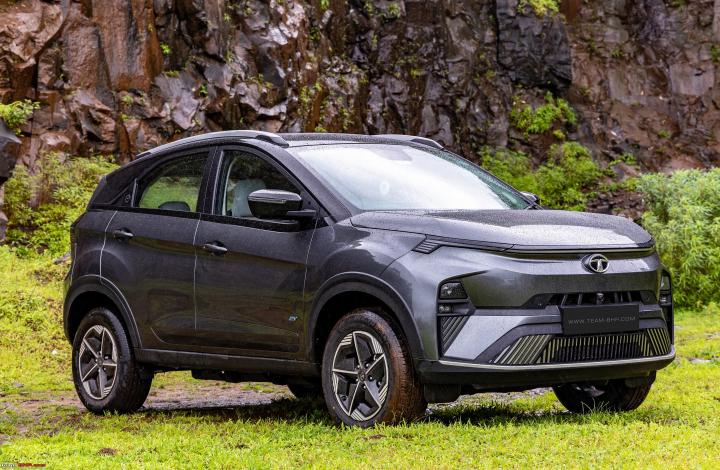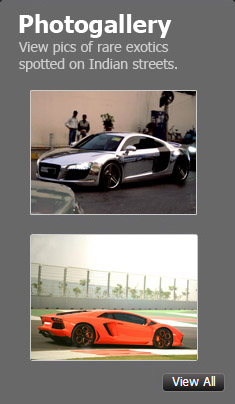News
Current EV owners answer if their next car will also be an EV
I cannot think of any parameter on which an ICE car even comes close to a BEV
BHPian V.Narayan recently shared this with other enthusiasts.
Too many market research studies from the USA, Australia and Papua New Guinea surface every third Friday on EV sales dropping or becoming less popular or EV owners ruing the day they bought an EV etc.
At Team BHP we don't need these surveys. We can generate our own real survey from real members who are EV owners. This survey is for Team-BHP members who are EV owners only {don't cheat folks :-) } Will your next car purchase be an EV an ICE car or a Hybrid? Unless a member has bought and used an EV it is difficult to fully embrace the EV experience.
As the owner and user of an EV {Volvo C40} a Hybrid {Lexus ES300h} and ICE {Honda Amaze}, I am sure my next buy, in a few years, will be an EV. But hey let me not influence the poll.
The main factor where EVs still fall short of an ICE is in the charging infrastructure, especially for those living in multi-storey buildings or who are compelled to park on the locality roads. The infrastructure to support long-distance driving in India will I am sure get to a point of reasonableness in 5 years or less.
Please share your votes, dear fellow Members.
Here's what BHPian Alfresco had to say on the matter:
I agree.
As an ICE car owner for the last 35 years and an EV owner having covered 75000 kms in the last 3 years, here are my main negatives of EVs. I use my EV for both city and highway use and have done 600kms in a day too.
People always talk about range. For ICE also they talk about the size of the tanks. The biggest drawback I have felt is with the charging time. You can increase chargers as much as you want but if it takes a minimum of an hour to charge then you can never plan quick trips.
Drop in efficiency as speed increases, even with the best of cars. The difference is not that much in ICE. My old petrol Innova gives an average of 10-11 kms when driven sedately with 90kmph as max and 9 km/l when driven hard or on mountainous roads. That is a difference of only 50-60 kms range on a full tank. Imagine an emergency situation. I keep my fingers crossed on outstation trips. If there is an emergency or I have to turn back and reach home quickly then I have to have a charger nearby and plan a break of almost an hour and keep my fingers crossed that the charger is working and that there is no one already charging there. Or You come back in the evening from work and have to go out again but can't as the battery is drained and the slow charger at home will require at least 2 hours for enough juice to take you to any place in the neighbourhood. Or you take your whole family to the nearest fast charger for your outing!
If you just have an EV then a lot of planning is required.
But EVs require almost zero maintenance and are really good for people who require it for city use primarily
Here's what BHPian V.Narayan had to say on the matter:
Each car owner has a unique situation in terms of needs {from the car} and resources {to support an EV} and that leads to unique preferences of what will work for A versus what will work for B.
Needs from the car, as we all know would be items like - long-distance vs large city running; mileage per month; how many drivers in the family; how long are 80% of your trips etc
Resources here would be - parking spot; do you live in a multi-storey or an independent house; do you have access to a plug point or not; are forced to park your car on the road; your budget for the car etc
Way too many of the threads on team BHP on EVs got derailed over things like "long distance driving"; "need to wake up at 5 AM and start driving 500 kms due to an emergency"; and several such very specific and genuine situations typically brought up by members who do not own an EV and these were used to thrash EV owners or justify why ICE is superior to EVs. Neither are ICE superior nor are EVs superior. It is each owner's unique basket of needs and resources that make one type of car preferable to the other. And what is a person's combination of needs and resources also changes by decade.
My guess is that EV infrastructure will blossom rapidly in the next 5 years and make EVs more attractive. ICE engines are not about to disappear. ICE cars might but not ICE engines. They will very much be needed for earth-moving machinery, Army battle tanks, all Army transport trucks/jeeps construction equipment, mobile cranes etc.
My next car purchase is about 4 to 5 years out. By then I suspect both charging infra and organic EV ranges would have increased significantly. Or such is my hope. My current EV gives me a real-world range of 475 kms. I run it only between battery charges of 90% to 20% which translates to around 330 kms which is good enough for all forseeable needs. If 5 years from now that figure of 330 kms climbed up to say 500kms then nirvana would be here.
Interestingly, one of our most respected and loved members, @Secretariat, who is a long-distance aficionado and a very dear friend of mine has decided to go for an EV.
PS: As an aside - we have 1.5 drivers in our domestic employ. Unless I specifically tell them which car to take out they'll pull out our EV for every trip be it a 150 kms round trip to Greater Noida or a grocery chore. I have to remind them to use the Amaze which is allegedly our utility car. But no sir the EV pops out all the time. Says something about the joy of driving an EV.
Here's what BHPian electric_eel had to say on the matter:
Single car garage (Nexon EV Max) with two people who drive (my better half and me). There will be 2 years of ownership coming December, crossed 31000 Kms today bulk of which is our regular office travel and grocery runs. So far it has been a dream run. This particular car is a perfect fit for our lifestyle. Being in Kerala helps, and having an independent house helps. Our driving is what I would call a typical (not an enthusiast who goes on long road trips) car-owning household in Kerala.
There is no way I am going to buy an ICE car ever. I cannot think of any parameter on which an ICE car even comes close to a BEV (within my budget, of course, we are not talking about very high-end cars). I might not consider an EV only if I decide not to own a car at all --- I hope to keep this car for the next 20 years (like our last car), by that time I might have to rethink the entire concept of car ownership knowing that I would be close to retirement by then and hopefully our public transport would become seriously good (I am not betting too much on this).
Here's what BHPian Humane India had to say on the matter:
Title: Will I ever go back to an ICE car?
Response: Only when we prove that the earth is a flat surface !!
Reason: These surveys are purely biased and hugely sponsored by Oil Industry lobbies by paying these MNCs via kickbacks !!
Context:
I have owned a VW Jetta 2.0 TDI since 2011 and have been driving it with an analytical mind like a geek to come to a conclusion about what true engineering is and how a car must have great driving dynamics along with a great engine-transmission combo
Recently we got an MG ZS EV and have been driving it from the same analytical angle since then, thereby testing its endurance in terms of range and driving dynamics
Comparative Observations:
1. Sheer Driving Pleasure
- Am I driving an EV just to save a few bucks? The answer is a big NO as EVs are just buttery smooth to drive compared to an ICE car
- The power delivery from the drivetrain is so smooth that you can drive 30% more in a day on the highway without feeling fatigued
- Even when compared to a CVT, TC OR DSG, the EV drives like roller skates and you do not feel the difference in inertia much compared to ICE powertrains
- The centre of gravity in an EV is far more balanced and optimal compared to any front or rear-mounted engine car. Hence the driving dynamics of the car feel much more planted compared to an ICE
- When the regen settings are set to the highest, the single pedal driving cuts 80% use of the brake pedal and the braking effect on the more than 1.5-ton car feels much more balanced compared to an ICE
- Being a hardcore German Engineering fan of the powertrain and transmission combo of ICE cars, this EV has already taken me away in love of EVs
2. Economical Aspects
- At home charging rates of any income of any state, an EV saves a minimum of Rs. 5.50 per kilometre (illustration Attached)
- Anyone who has the luxury of solar installed MUST look at EVs seriously if their commute is routined 80% of the days i.e Point A to B travels AS they will be driving free and saving almost Rs. 7 per kilometre
- The Indian mentality that is observed with regard to EVs is - What if I want to travel to an outstation with an EV? People with a routine commute from home to the office 5 days a week, say from Delhi to Gurgaon with 80 km a day, ignore the benefits of saving fuel cost of a minimum 400 km commute for a work week and reject an EV outright for those 2 days of weekend travel plans. That is almost like ignoring saving of Rs. 2000/- a week (Crunch the numbers of monthly savings as per individual commute)
- Even on weekends if you want to travel, the first 300 kms will be free as the residual charge from the previous day and the overnight charging from the slowest charging rate from 11 PM to 7 AM the previous night is more than 35% daily - So the car will never be out of juice even with tortoise charging, let alone 3.3 kW or 7.4 kW options of fast AC charging
- Even if you travel long distances on weekends, there are plenty of DC fast chargers on the highways that can charge your car fully while you have lunch/dinner stop - which is anyway 35-45 minutes even in an ICE car
- The lack of too many moving parts in an EV compared to an ICE car makes the maintenance easy on the pocket. The cost of maintenance of an EV is one-third compared to any low-maintenance ICE car like Maruti/Hyundai
- The tyres have a longer life span than an ICE car due to low rolling resistance in most cases and the brake pads and discs last even longer if one cracks the technique to use motor regen optimally
3. Battery Concerns
- Most of the LFP batteries offered in e4w cars like Tata, Mahindra & MG have a standard warranty of a minimum of 8 years OR 1,50,000 km or more
- The biggest concern you get to hear from people who are about to buy an EV or for the best time of people who do not even plan to own or own an EV and just want to pass on misinformation is - WHAT IS THE COST FOR REPLACEMENT OF BATTERY AFTER WARRANTY PERIOD?
- First of all, the whole battery is battery is never replaced unless and until the whole circuit of the battery is damaged
- Think of the battery like a bunch of grapes, only the bad module of the battery will get thrown away and replaced with a new module/bunch AND not the whole battery pack
- There are reports of cars in the USA that people are driving more than 3L miles for more than 8-10 years and still their EVs are running with more than 85% battery hold capacity
- So it is a clear myth that the batteries would not last long or the whole battery pack has to be replaced with a huge cost post-warranty period
4. Mindset
- This is perhaps the biggest thorn in the adoption story of EVs worldwide
- Either people do not study well before buying an EV or they get discouraged due to ill advice of layman's understanding
- People buying an EV must think like a modern youngster, be curiosities about the ecosystem, and the techniques to drive this new technology, be more collaborative and learn from co-owners of EV
- A person who is not ready to think beyond the traditional approaches of Petrol/Diesel should - NEVER BUY AN EV EVER - because they will always find a reason to blame upon buying it
- I urge people not to fall into the traps of such reports and move towards a brand new change of lifestyle of smooth driving with an aim to contribute to the global story of reducing pollution caused because a few greedy people want to earn billions of dollars for themselves
" Switch To An EV asap"
Check out BHPian comments for more insights and information.


















